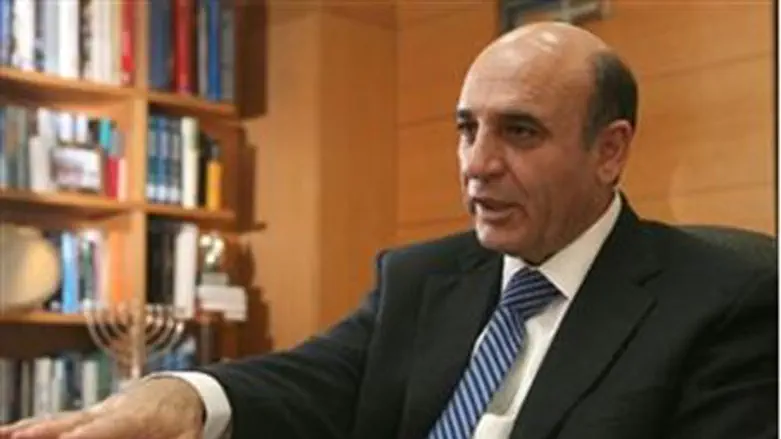
Prime Minister Binyamin Netanyahu on Monday scrapped the Keshev Committee, tasked with drafting a replacement for the controversial Tal Law.
Kadima party chairman and Vice Prime Minister Shaul Mofaz responded by threatening to quit the government if Netanyahu did not follow through with the committee's recommendations.
"I reject the announcement of the prime minister and pledge my full support to Plesner's committee," Mofaz said.
"The committee was formed by all the parties together, and its unilateral dissolution by the prime minister does not obligate Kadima [to accept the decision]."
The Keshev Committee's recommendations are "the basis for any real attempt to fix the historic problem of the unequal burden," Mofaz said.
"If the prime minister chooses not to go in that direction, the national unity government will end," he added.
Netanyahu established the Keshev Committee, chaired by Kadima MK Yohanan Plesner, immediately after signing a surprise unity government agreement with Kadima, formerly the leading opposition party.
The committee was in response to a February ruling by the Supreme Court ruled that the Tal Law, which allowed hareidim to indefinitely postpone IDF, but also provided a way for them to serve and then gradually enter the job market, was unconstitutional and a replacement must be found for it by July 31.
Sources in Kadima expressed anger over Netanyahu's comments, declaring that the Keshev committee on equitable IDF service had been allowed to collapse.
The haredi representative on the Keshev Committee, attorney Yaakov Weinroth, quit the panel Sunday because of his opposition to the committee's plans to personally sanction hareidim that do not serve.
Yisrael Beyteinu and Habayit Hayehudi also quit the committee last week for not obligating mandatory national service for Israeli Arabs.
Kadima sources say they knew early on Monday morning that Netanyahu intended to declare the committee defunct.
Observers say Mofaz's threat, which was couched in language that allowed Netanyahu to proceed without the committee, would unlikely be carried out.
Netanyahu earlier on Monday said, "I hope we succeed in solving this during our current efforts. But eventually it [a solution] will be achieved. One way or another this thing will be achieved, because the state of Israel needs a more egalitarian division of the burden."
Meanwhile, Finance Minister Yuval Steinitz said Monday that he opposes conscripting hareidim to the military by force arguing it is more important they be integrated into Israel’s workforce.
"The country's most essential and urgent need," he said, is integrating the hareidim into the work force, before anything else," Steinitz said.
"If in the next 10 to 20 years there is no ongoing process enlarging the participation of hareidim in the work force, the economy will suffer and the market will not grow by 4% or more."